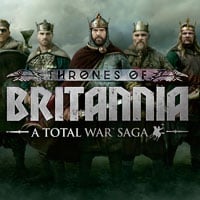Total War Saga Thrones of Britannia: A handful of tips for a start
Last update:
- Choosing a faction
- Increase your profit and food
- Figure out what is happening on the map
- It is easier to govern an entire province than a part of it
- Public order and rebels
- Recruiting armies and units
- Characters and stats
- Watch out for Loyalty and Influence of your characters
Choosing a faction

There are a few good starting factions. The game will suggest you to choose Wessex kingdom. It has a few provinces and kingdoms that come under their authority. The downside of this faction are frequent Viking raids that come from outside the map. Mide kingdom, located in Ireland, is a good choice if you are looking for a small kingdom that offers a lot of ways of development. The island is placed away from the bigger eastern countries and isn't raided by Vikings as frequently as the other nations. Choose Northumbria if you plan on playing as Vikings. They have a lot of provinces and powerful units. They aren't vulnerable to regular Viking raids, and they have rather weak neighbors.
Increase your profit and food
Strengthen your provinces before you start expanding your territories. Increasing your profit is the absolute basis - thanks to that you will have money for recruiting and maintaining a greater army. Food is also important because it allows you to use your army and to replenish your soldiers. Low amount of food can make your people unhappy, and your units will need more time to become fully operational again. Upgrade your already existing buildings and create buildings in provinces' capitals that will work together with villages.
Figure out what is happening on the map
You can make your life easier by paying attention to what your neighbors are doing. Making an alliance with a kingdom that fights with your neighbor is a good idea. Thanks to that you will make the process of getting new lands easier for you. You can also decide to be a cunning diplomat. For example, make an alliance with your neighbor and declare war on the kingdom that is a bigger threat to your ally than to you. Let the enemy to conquer lands of your ally and then capture them for yourself.
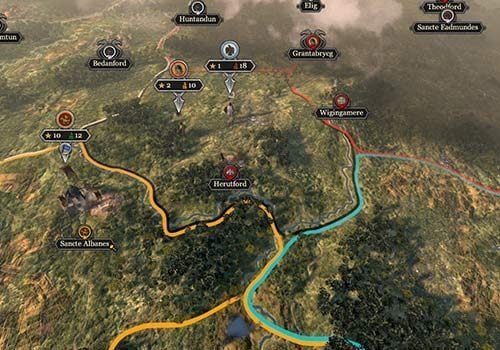
The game helps you distinguish friends from foes by using different colors on the main map. Colored outlines around icons depicting settlements, towns, fleets and armies allow you to quickly evaluate a diplomatic status of other kingdoms towards yours. These colors are:
- Yellow - your units and provinces
- White - neutral countries
- Blue - allies and subordinate nations (vassals)
- Red - kingdoms with which you are at war. Viking forces are also marked in this color.
These colors are always visible on the strategic map but you can also turn strategy mode on (press TAB key or click on the button located in the upper right corner of the screen) and change one of the options presented on the top to "diplomatic status". Thanks to that you can immediately see, e.g. regions and armies you are fighting against. You can also choose another kingdom and check their diplomatic status with other nations.
It is easier to govern an entire province than a part of it
Provinces usually consist of a few estates: settlements (1-4 small villages - this depends on an estate) and a capital (a town surrounded by walls). Settlements usually have structures that give you money and/or food, e.g. fields, orchards, mines. You can only upgrade already existing buildings in those settlements.
Towns, after upgrading the main building, can increase their maximum number of additional structures. These buildings usually offer bonuses to certain fields, e.g. public order, rate of replenishing troops, rate of developing technologies or they can offer profits and bonuses to a certain economy branch.

Having only a part of a province means that you will probably waste its potential. Owning only a town is a better solution from a military point of view (it is more difficult to capture a settlement like this). Having only regular settlements can provide you a better profit but they are also more problematic when it comes to keeping order. In a settlement capital you can place buildings that increase public order or that speed up the technology development process. Some structures, e.g. mines, have a negative impact on order in that area which means that these buildings can be easily lost to rebels. Prepare yourself to have constant lack of order if you have only one estate with a mine.
Public order and rebels
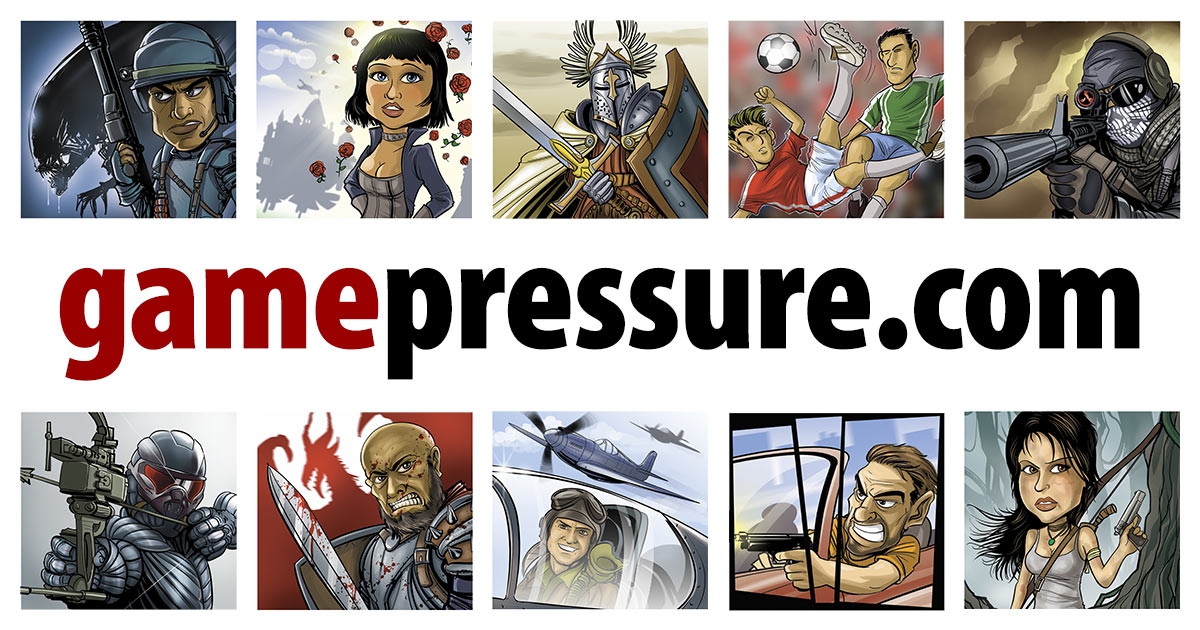
Public order decides about a province's security. Certain buildings and recent events (e.g. a recent conquer, lack of food or a raid) have negative impact on public order. The lower the value (negative order points), the more probable that rebels will appear in that province.
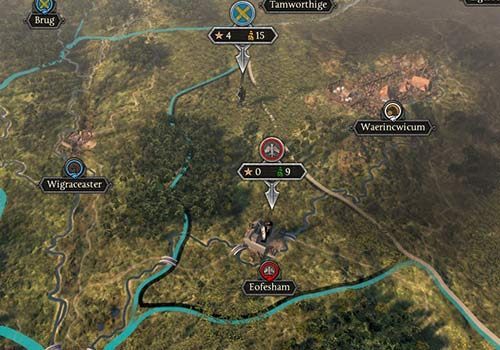
Rebels can start to raid that area or they can conquer nearest settlements which makes your territory more vulnerable. Settlements controlled by rebels belong to no one. Every nation can fight with those rebels and conquer that province for themselves without any penalties to relations with that area's former owner.
You can increase public order by building Churches or Taverns, assigning a governor or by assigning a general with at least one point in Zeal. Otherwise, you should keep an army near that place to react quickly and eliminate all threat. It is easier to maintain a province rather than single estates so take care of integrity of your conquered lands.
Recruiting armies and units
If you want to create a new army, you have to select a settlement or a town and click on the button located on the lower information panel (Create army). It will allow you to make a new general. Now, select one from the potential candidates. Pay attention to Command and Zeal stats (they will be useful in keeping order in a province).
Then, move to any of the districts and open the recruitment window. You can recruit any number you want from the available units in your overall pool. Unlike the other games from Total War series, here, you don't have to own special buildings to recruit certain units, e.g. archers or cavalry.
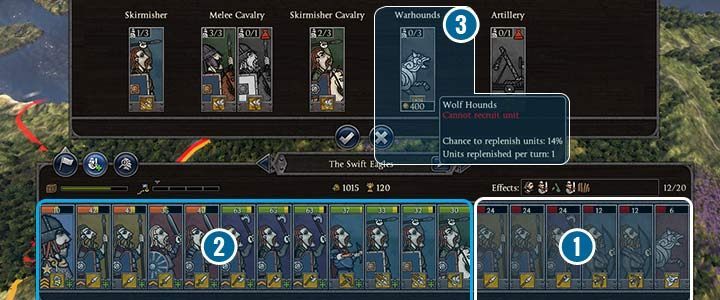
Remember that initially, your units consist of a small number of troops. You have to wait a few turns to have them fully ready. The best way to replenish troops is to do that in settlements in a friendly province or when you fortify your army (a special order on the strategic map), although the number of replenished troops is still small.
Create another army whenever it is possible, especially during peace. This installment doesn't feature an option to recruit mercenaries. During war, fielding an efficient army can take you a few turns which can have impact on your success or failure. Because of that it is better to be prepared before a new war breaks out.
Characters and stats
Characters in your kingdom are divided into a few "types". Adult men, sons, brothers etc. and statesmen can be assigned as generals of your army or governors of provinces. Women in your family can be married to increase or decrease certain stats of your characters. They can also marry someone from another kingdom to strengthen bonds between these nations (an increase in relations).
Every male member of your court has multiple stats:
- Command (how well they do on a battlefield and how good they are at commanding an army).
- Governance (reduces corruption and increases profits of a province governed by them).
- Zeal (has impact on public order, morale and range of a general's aura during battles).
- Besides that, each character has traits (e.g. their bravery on a battlefield) that have impact not only on stats but also on other mechanics, e.g. public order, army morale, a chance to have babies etc.
- Every male character can have a wife who provides a few bonuses and enables an option to create a family.
- They get experience (for participating in battles, fulfilling their role as a governor or as a bonus from events or structures) that can be changed into a skill (follower) level, e.g. Scribe offers a bonus to taxes from provinces and extra Governance points.
- Some of the characters can receive special titles, e.g. Chamberlain, which increase certain stats.
Any of the characters in your kingdom can become your heir (however, people outside of your family have to be adopted by you first). Changing an heir is usually met with negative reactions from other members of your court. However, you can think about making a move like this if a character has very good stats (e.g. a lot of points in Command). The faction screen features a small panel called "Intrigue" which allows you to have impact on lives of every character in your kingdom to some extent. These options include a way of increasing someone's loyalty towards you, a chance to find a wife or you can lower someone's influence. Ultimately, you can also use an option to assassinate any of the characters but you should be prepared to face negative consequences if attempt fails.
Watch out for Loyalty and Influence of your characters
Each character in your kingdom has various stats but Loyalty and Influence are especially important. The first stat informs you about a character's devotion to a current leader of your faction. Loyalty lower than 3 can make that character try to harm your position or, in extreme cases, to defy your will. Their army appears in one of your provinces which causes a civil war. Unlike rebels, only you can fight with this army although you can ask other kingdoms for their support.
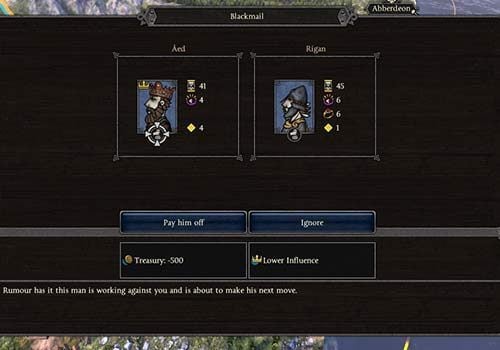
Influence decides about someone's authority and political might in your kingdom. The more influence a leader has, the easier it is for other characters to subordinate him. Also, Influence serves as some sort of currency during numerous events, e.g. when you are bribing your subordinates. You can often decide whether you want to lose Influence points and gain Loyalty of a given character. A leader with less Influence points than other characters from that kingdom may have to deal with their demands or even blackmails. The "Intrigue" window allows you to influence certain characters and reduce their Influence level.
- Total War Saga: Thrones of Britannia Game Guide
- Total War Saga Thrones of Britannia: Game guide
- Total War Saga Thrones of Britannia: Starting tips
- Total War Saga Thrones of Britannia: Interface
- Total War Saga Thrones of Britannia: A handful of tips for a start
- Total War Saga Thrones of Britannia: How to increase your profit and food?
- Total War Saga Thrones of Britannia: How to create and move armies?
- Total War Saga Thrones of Britannia: Diplomacy in a nutshell
- Total War Saga Thrones of Britannia: Starting tips
- Total War Saga Thrones of Britannia: Game guide
You are not permitted to copy any image, text or info from this page. This site is not associated with and/or endorsed by the developers and the publishers. All logos and images are copyrighted by their respective owners.
Copyright © 2000 - 2026 Webedia Polska SA for gamepressure.com, unofficial game guides, walkthroughs, secrets, game tips, maps & strategies for top games.
